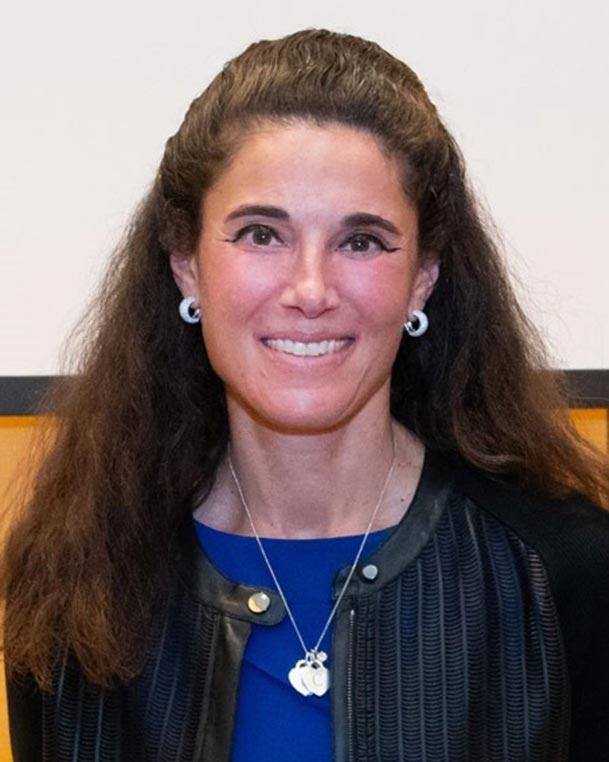
Jill S. Barnholtz-Sloan, Ph.D.
NCI Shady Grove
Dr. Barnholtz-Sloan earned a Ph.D. in biostatistics from the University of Texas Health Science Center at Houston School of Public Health in 2000. She joined DCEG in 2021, with a joint appointment as Associate Director for Informatics and Data Science, in the Center for Biomedical Informatics & Information Technology (CBIIT). In June 2024 she was named Acting Director of CBIIT.
Prior to joining DCEG, Dr. Barnholtz-Sloan was faculty at Case Western Reserve University School of Medicine where she served as the Sally S. Morley Designated Professor in the Department of Population and Quantitative Health Sciences, Director of Research Health Analytics at University Hospitals of Cleveland, and Associate Director for Data Sciences at the Case Comprehensive Cancer Center. While there, she used her training in biostatistics, epidemiology, population genetics, and human genetics to focus on building multidisciplinary groups to use data and analytics to advance health care.
Dr. Barnholtz-Sloan's role in team science has been essential for multiple, successful multi-disciplinary research projects. In the Trans-Divisional Research Program, she is facilitating collaborations in data science and in the study of brain tumors by leveraging her experience in multi-institutional team science and the use of large, complex healthcare datasets to enhance the data assets already available in the NCI Cancer Research Data Commons.
Given her dual roles in CBIIT and DCEG, Dr. Barnholtz-Sloan envisions bringing data science to all research domains within DCEG, helping to move towards (1) use of cloud resources for computing and data sharing via the NIH Science and Technology Research Infrastructure for Discovery, Experimentation, and Sustainability (STRIDES) Initiative, and (2) use of the Findability, Accessibility, Interoperability, and Reuse (FAIR) principles for research in DCEG. In addition, she is developing and facilitating closer links with all divisions across the NCI and more generally across NIH, especially with the NIH Office for Data Science Strategy, in order to more fully leverage data assets and data analytics for cancer research.
Research Interests
Brain Tumor Epidemiology
Dr. Barnholtz-Sloan’s work has focused on brain tumor epidemiology with a concentration on brain tumor statistics, risk factors for disease, and prognostic factors after brain tumor diagnosis. Brain tumors, although rare compared to other tumor types, contribute disproportionately to morbidity and mortality. Dr. Barnholtz-Sloan has been involved in important discoveries including a lack of large significant changes in incidence of brain tumors over the current time period, racial/ethnic differences in incidence and survival, and sex-specific differences in incidence and survival. In DCEG she is continuing this work focusing on utilizing collaborations with the Surveillance, Epidemiology and End Results (SEER) program, the National Program of Cancer Registries (NPCR) at the Centers for Disease Control (CDC), Veterans Health Administration (VHA), and commercial sources of real-world data to deeply investigate the epidemiology and etiology of brain and CNS tumors, with a focus on sex differences.
Sex Differences in Brain Tumors
Dr. Barnholtz-Sloan’s research team has demonstrated widespread sex differences in incidence and survival after diagnosis for many histopathological types of brain tumors, both malignant and non-malignant. She and her team have collaborated with others to identify male and female-specific gene expression clusters that uncovered long-term survival signatures, with male long-term survivors having alterations in cell cycle genes compared to female long-term survivors that had alterations in integrin signaling genes. Building upon these findings Dr. Barnholtz-Sloan’s research is investigating sex biases in the -omics of brain and CNS tumors as well as sex differences in the epidemiology and etiology of these tumors.
Press Contacts
To request an interview with NCI researchers, email the NIH Press Office via NIHPress@nih.gov.